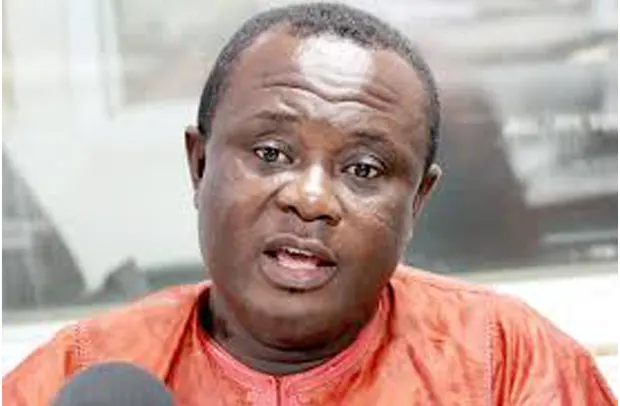Joseph Osei-Owusu
The First Deputy Speaker of Parliament, Joseph Osei-Owusu, has described the recent happenings in the House as a display of “the worst part” of Members of Parliament (MPs), lamenting a shift away from the traditional values that have upheld the institution.
Commenting on the aftermath of the declaration of vacant seats controversy, Mr. Osei-Owusu, who is popularly known as Joe Wise, criticised the behaviour of MPs to resort to drama and escalations as well as the public airing of conflicts in the chamber.
According to him, the recent open agitations mark a departure from the backroom negotiations that have long governed the legislative process.
“We’re demonstrating the worst part of us, and this does not reflect the values that have carried Parliament through the years,” he stressed.
Speaking in an interview with Accra-based TV3, the First Deputy Speaker, Osei-Owusu expressed disappointment at the current tensions and public displays of animosity within Parliament.
“In the previous three parliaments I’ve been in, such matters were discussed behind closed doors at the leadership level,” he said, and continued, “Now, we’re witnessing open agitation, which serves no productive purpose.”
“It’s time we focused on what truly matters to Ghanaians, rather than engaging in public displays of division and power struggles,” he added.
While avoiding direct blame, Mr. Osei-Owusu acknowledged that the near-equal numbers in Parliament have heightened the stakes, leading to what he described as “too much drama on things we could easily discuss and agree on.”
He noted that some MPs had become more preoccupied with theatrics than with issues of substantive value, a shift he partly attributes to an influx of younger parliamentarians.
“The older you grow, the less drama appeals to you. You want results,” the New Patriotic Party (NPP) MP for Bekwai stated.
Leadership Shifts
Joe Wise suggested that the replacement of seasoned leaders with younger, more assertive MPs have influenced the overall tone in Parliament.
“The voices of the elders are drowned,” he said, reflecting on a time when parliamentary leaders were, in his view, “a lot more mature and committed to focusing on critical issues.”
For him, this generational change has raised questions about the impact of youth dynamics on parliamentary discipline and cooperation.
Although Mr. Osei-Owusu did not blame young MPs directly, he stressed that the political drama detracts from Parliament’s work and that some senior MPs are disheartened by these changes.
Vacated Seats Controversy
On the issue of vacated seats’ declaration, even though Mr. Osei-Owusu withheld personal judgment on Speaker Alban S.K. Bagbin’s decision, he said such issues of constitutional interpretation should ideally have been handled discreetly.
According to him, it is his wish that the Supreme Court will quickly settle these matters once and for all in order to prevent a repeat of this situation.
“In my view, if you were elected on one ticket and then decide to switch, it’s a question that should go back to the electorate, not be decided by the Speaker,” he asserted.
Parliamentary Theatric
Mr. Osei-Owusu was also concerned over allegations that some MPs have incited external support to disrupt proceedings and confront the Majority Caucus.
He supported the Majority Leader, Alexander Afenyo-Markin’s decision to avoid any actions that could turn parliamentary debate into a “theatre to denigrate Parliament.”
“If we encourage any such thing, we’re denigrating ourselves,” he added, calling for a unified parliamentary response to uphold the institution’s dignity.
The First Deputy Speaker also dismissed concerns that the Supreme Court’s involvement constitutes interference in parliamentary affairs, citing the constitutional mandate that Parliament’s actions must align with the law.
Way Forward
Joe Wise called for a return to consensus-building and greater respect for parliamentary processes.
He also advocated for a stronger adherence to the time-tested approach of handling disputes privately rather than resorting to public confrontations.
He emphasised that a renewed focus on national priorities would help Parliament regain the trust of Ghanaians and uphold the institution’s reputation.
By Ernest Kofi Adu


